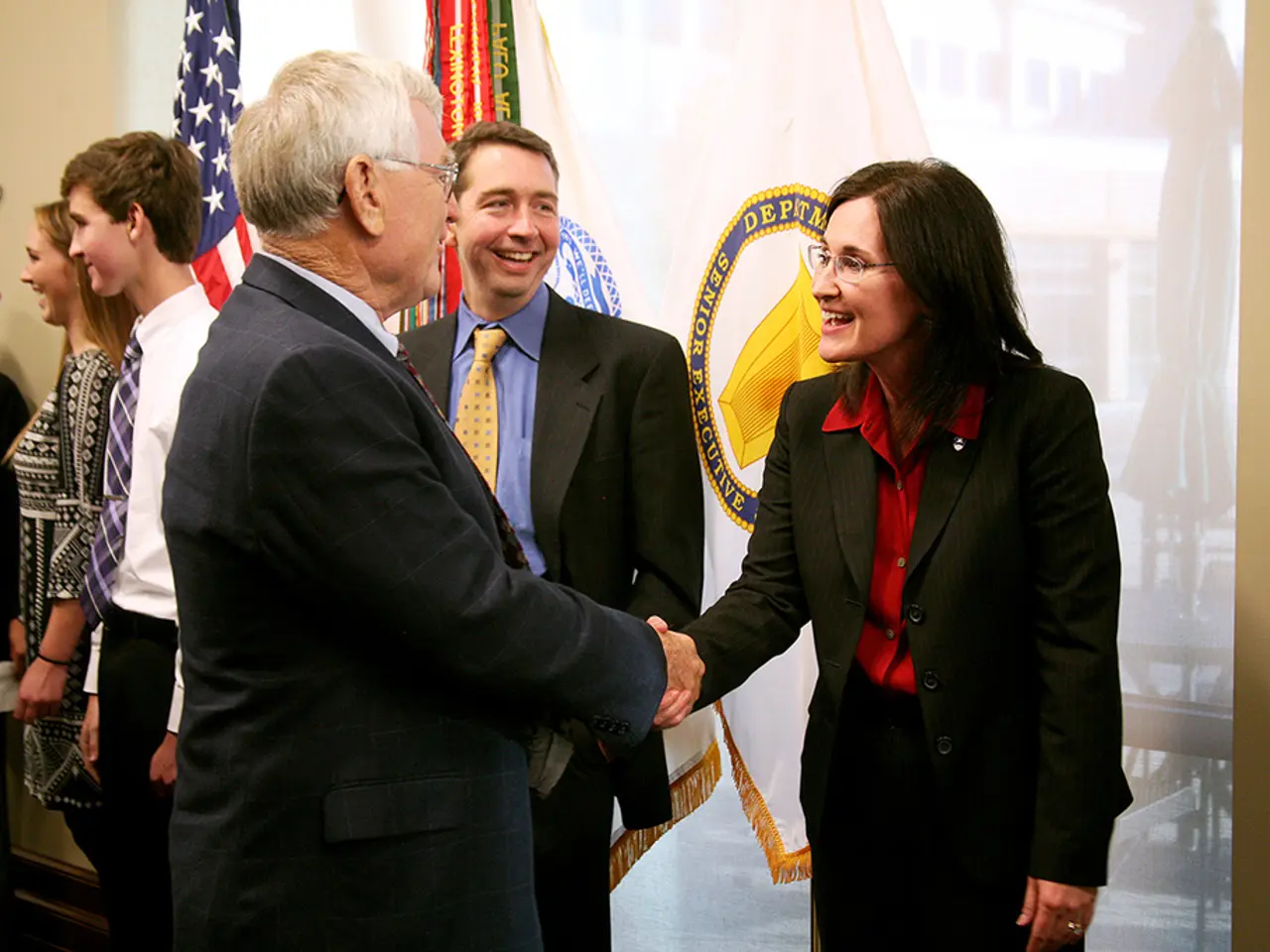International Gathering in Ukraine - Reaching the Pinnacle of Conflict
The ongoing question of whether Germany should send Bundeswehr troops to Ukraine, 80 years after the end of World War II, is at the forefront of discussions as world leaders gather to coordinate efforts for a just and lasting peace that protects Ukraine's vital interests and European security.
The latest meeting in Washington on August 18, 2025, involved President Putin, President Zelensky, and several European leaders, including President Macron, President Trump, and others. Key developments and outcomes indicate ongoing dialogue but no definitive agreement on territorial concessions, ceasefire, or security guarantees has been reached.
Regarding territorial concessions, Russia remains unwilling to give up much and appears to propose minimal concessions conditioned on vague security guarantees from the West, which Ukraine and its allies find unacceptable. Ukraine strongly resists disproportionate "land swaps" proposed by Russia as a basis for peace.
On the issue of a ceasefire, the U.S. President Donald Trump notably abandoned the earlier demand for an immediate ceasefire during talks, aligning instead with Putin's argument that negotiations should move directly to crafting a long-term peace solution rather than pausing hostilities first. However, recent missile attacks on Ukraine during or following diplomatic efforts underscore the fragility of any ceasefire prospects.
For security guarantees, discussions involve vague commitments from the U.S. to provide written but poorly defined guarantees to Ukraine's security. These assurances are seen as insufficient or unclear by Ukrainian leadership. The main political leaders involved emphasize the necessity to safeguard Ukraine’s sovereignty and Europe’s overall security, highlighting coordination between the U.S. and European nations as crucial to any agreement.
Notably, there is still a considerable challenge in arranging a direct high-stakes meeting between Putin and Zelensky, given Putin's denial of Zelensky’s legitimacy as a leader and resistance to negotiating as equals. Proposed venues like Switzerland, Budapest, or Moscow have been suggested but no meeting has yet been finalized.
Germany continues to stand firmly by Ukraine's side, with Chancellor Merz taking a leading role among European allies. Chancellor Merz stated that he cannot imagine the next meeting taking place without a ceasefire. The scope of security guarantees must be discussed in Europe and within the coalition in Berlin, Merz said.
Russia demands Ukraine's recognition of lost territories as a condition for a ceasefire. However, Zelensky has stressed that the Ukrainian constitution does not allow for the abandonment or exchange of territories. Moscow has proposed that Ukrainian forces withdraw completely from the not yet fully controlled Luhansk and Donetsk regions as a condition for a ceasefire.
Difficult discussions are underway about how Germany should participate in security guarantees for Ukraine in the event of a peace agreement. The Russian Foreign Ministry has stated that Russia would not accept troops from NATO countries for peacekeeping in Ukraine after a ceasefire.
The overall atmosphere remains cautious and complex, with the threat of continued conflict alongside diplomatic engagement. The U.S. President Trump has announced plans for a bilateral meeting between Vladimir Putin and Volodymyr Zelensky, expected to take place within the next two weeks. French President Emmanuel Macron suggested the possibility of "deterrence troops on the sea, in the air, and on the ground" for Ukraine.
The Finnish President Alexander Stubb stated that Putin's fundamental strategic goals have not changed, including dividing the West and taking away Ukraine's sovereignty. Zelensky withdrew his long-standing demand for a ceasefire before a meeting with Putin, stating that they should meet without any preconditions.
In summary, the summit fostered tactical progress toward peace talks with high-level political coordination but revealed deep strategic divisions. The road to a lasting peace in Ukraine remains challenging, with many issues yet to be resolved.
Read also:
- Weekly happenings in the German Federal Parliament (Bundestag)
- Southwest region's most popular posts, accompanied by an inquiry:
- Discussion between Putin and Trump in Alaska could potentially overshadow Ukraine's concerns
- Massive 8.8 earthquake hits off the coast of Russia's Kamchatka Peninsula, prompting Japan to issue a tsunami alert.








